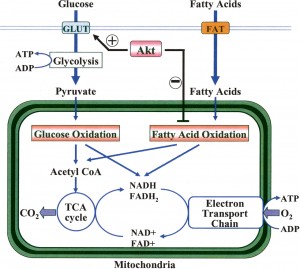Drinking Water Increases Fat Burning
Drinking Water Increases Fat Oxidation
I am sure you have heard or read the weight loss tip of drinking water to help you lose weight. Well, for most of us the reason for drinking water was to help feel fuller faster so we ate less calories.
Also, if we drank water instead of caloric beverages we would consume less calories, which may lead to weight loss. There were also the critics that may have told you this was ridiculous and you were wasting your time drinking water as a tool for greater weight loss.
Well, there is some pretty solid evidence that says this is not ridiculous at all and the studies conducted on this have been some of the more rigorous studies conducted with crossover experiments and randomized and controlled trials.
In various crossover experiments drinking water resulted in lower total caloric intake with the subjects that were tested. The reason for this is simple and it is because they were not consuming calorie filled beverages. They were replacing these caloric beverages with water that has zero calories.
What was also found was that the individuals do not eat less food when they know they are drinking caloric beverages. They still eat the same amount of calories regardless of if their beverages contained calories or not.
Drinking Water Increases Fat Oxidation
Fat oxidation is at its greatest when your insulin levels are low. The reason for this is because insulin inhibits or decreases the ability of rate limiting enzymes that breakdown triglyceride fats into free fatty acids. As well as the transport of these free fatty acids into the mitochondria and Krebs cycle to be burned for energy.
Since water does not contain calories or carbohydrates like over beverages it does not trigger an insulin response. If you were to compare it to the glycemic index water is of course 0, milk is around 35, juice is around 50 and sugary drinks are as high as 80.
Keeping your insulin levels lows results in greater rates of fat oxidation. Now remember this doesn’t apply just to water. The foods you eat and what combination of nutrients you eat can all influence the insulin response. Keeping your insulin response consistently lower throughout the day will allow your body to burn more stored fat as energy.
Anytime your insulin and blood sugar levels are elevated you stop fat breakdown and fat oxidation.
There have been decades of crossover studies that consistently show higher levels of fat oxidation when drinking water compared to caloric drinks before or during low to moderate exercise. If you look at the average of these studies the fat oxidation is around 40% greater after water is consumed than after a caloric beverage.
It is normal for fat oxidation to be depressed for a length of time after a meal because naturally your body is going to release insulin to properly utilize the nutrients you just consumed. What you choose for your beverage though can dictate how long that slow down of fat oxidation really is.
Research has shown that drinking water instead of a caloric beverage can restore the rate of fat oxidation to pre-meal levels about 2 hours sooner than if you were to drink a caloric beverage with the same meal.
Some studies have shown that consumption of 500-600 calories from carbohydrates can depress fat oxidation for 6 hours after consumption.
Hypocaloric Diets and Water Leads To Weight Loss
Two very interesting intervention studies looked at a hypocaloric diet and then the same diet plus water as the beverage. One study looked at 48 randomized overweight or obese men and women. They were given a hypocaloric diet plus 500ml of water at each meal or they were just given the hypocaloric diet (control) with no water.
The results showed that weight loss in the water group was 2kg greater. In analysis of data from the Stanford A to Z Study they focused on 155 overweight premenopausal women who reported drinking less than 1L/ day of water before beginning 1 of 4 different weight programs. The programs were the Atkins diet, Zone diet, LEARN diet, and Ornish diet. The 4 programs do recommend drinking 1L/day of water or more and limiting or no intake at all of caloric beverages.
After 2 months of their diet classes they all reported higher water intake and less caloric beverage intake. Independent of any changes in diet or physical activity those who increased their water intake and decreased caloric beverage intake had significantly greater weight loss.
Summary
Ok, lets summarize all this data as some of it may have gotten confusing.
Drinking water during the day and at your meals instead of drinking calorie filled beverages decreases your total calorie intake and it also promotes greater fat oxidation, which is the burning of stored fat as energy.
So drink water at meals and in-between meals instead of calorie filled beverages. Finally, eat a higher protein rich and lower carb diet to minimize the insulin spikes that will depress fat oxidation for hours after that meal.
If you would like to support my website and pups!
- HCG Diet 23 Day Round Tracker Spreadsheet-PDF
- HCG Online Ordering
- HCG-Diet-23-Day-Round-Tracking-Spreadsheet
- HCG-Diet-43-Day-Round-Tracking-Spreadsheet
- Master Cleanse
- Mixing HCG for Injections
- Pound & Inches Audio Book
- Pounds and Inches Protocol
- Teas for Weight loss, Detox, and Cleansing
- Weight & Measure Charts
- Best Tape Measuring Device | Loseit4ever.com on Weight and Measurement Charts
- Get Started with HCG | Loseit4ever.com on Weight and Measurement Charts
- Get Started with HCG | Loseit4ever.com on Supplies Needed to do the HCG Diet
- HCG RX Mixing Instructions for Injection Method | Loseit4ever.com on Supplies Needed to do the HCG Diet
- HCG Results Update | Loseit4ever.com on Supplies Needed to do the HCG Diet

